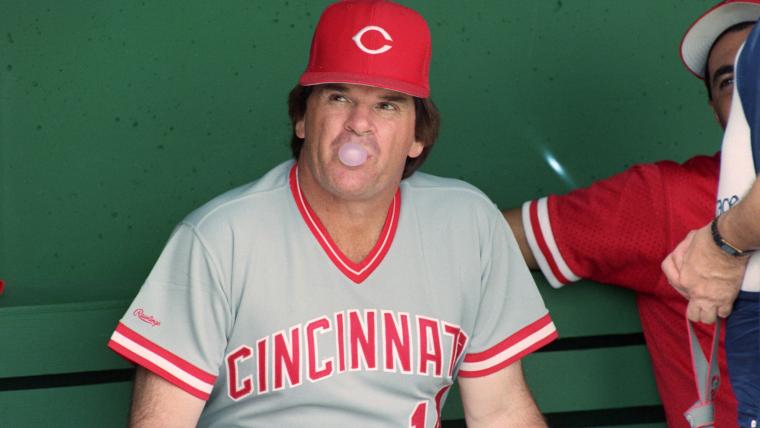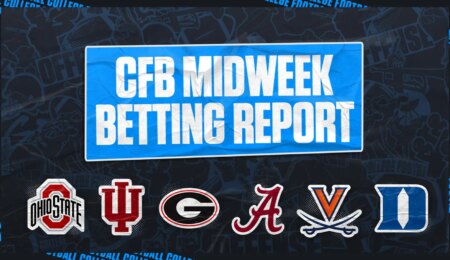Pete Rose: The All-Time Hits Leader
Pete Rose, affectionately known as "Charlie Hustle," remains a towering figure in Major League Baseball (MLB) history, despite his controversial legacy. Almost four decades after his retirement, he holds the record for the most hits in MLB history, with 4,256. This remarkable feat places him ahead of Hall of Famers Ty Cobb, who has 4,189 hits, and Hank Aaron, with 3,771. Despite his unparalleled achievements on the field, Rose’s name is conspicuously absent from the Baseball Hall of Fame, a consequence of his admission to betting on baseball. The former Cincinnati Reds player and manager was first accused of this infraction in 1989, three years after his playing days ended and while he was still managing the team. In 1991, MLB Commissioner Bart Giamatti imposed a lifetime ban on Rose, which was upheld by subsequent commissioners, including Rob Manfred. The ban has been a point of contention among baseball fans and historians, many of whom argue that Rose’s contributions to the sport warrant a place in the Hall of Fame. In September 2024, the baseball community was stunned by the news of Rose’s passing, leading to renewed discussions about his posthumous induction.
The President Trump-Pete Rose Pardon
On a recent Saturday, former President Donald Trump reignited the debate over Rose’s legacy by announcing on his social media platform, Truth Social, that he would issue a complete posthumous pardon for Rose. The pardon specifically addresses Rose’s federal tax crimes, which involved two felony charges of filing false tax returns in 1990. According to the Los Angeles Times, Rose failed to report $354,968 in income from memorabilia sales, autograph signings, and personal appearances. Trump’s post criticized MLB for excluding Rose from the Hall of Fame, highlighting his status as the all-time hits leader and his record for playing in the most winning games. The former president expressed his intention to sign a "complete pardon" for Rose, presumably in the near future. This move has sparked a range of reactions, from supporters who see it as a step toward vindication to critics who argue that it does not address the core issue of his betting on baseball.
The Tax Return Charges
The "complete pardon" announced by Trump is particularly noteworthy because it only pertains to Rose’s tax return charges, not his gambling activities. Rose was found guilty of two felony charges of filing false tax returns in 1990, and he served a five-month sentence in a federal correctional institution. While this was a significant legal issue, it is distinct from the rule violations that led to his lifetime ban from baseball. Rose’s gambling on baseball, which he admitted to in 1989, was a violation of MLB’s rules and the integrity of the sport. However, he was never criminally charged for these actions. MLB chose to impose a severe penalty to reinforce its zero-tolerance policy and deter other players from engaging in similar behavior. Trump’s pardon, therefore, only forgives Rose for his tax evasion, which has long been served and does not remove the stain of his gambling activities on the game.
Gambling on Baseball: No Criminal Charges
One of the most misunderstood aspects of Rose’s case is that he was never arrested or criminally charged for gambling on baseball. While his actions were undoubtedly against the rules and the integrity of the sport, they did not result in criminal proceedings. MLB’s decision to ban Rose for life was a deliberate move to send a strong message about the importance of maintaining the game’s integrity. The league’s harsh punishment served as a deterrent, ensuring that future players understood the severe consequences of betting on baseball. This distinction is crucial because it underscores the fact that Rose’s ban is not a legal matter but a disciplinary one. Trump’s pardon, while significant for Rose’s tax issues, does not have any official bearing on how MLB views Rose’s violations of the sport’s rules.
Impact on Hall of Fame Eligibility
Despite the pardon, Rose’s eligibility for the Baseball Hall of Fame remains unchanged. In a statement to ESPN, John Dowd, who investigated Rose for MLB in 1989, emphasized that "MLB is not in the pardon business nor does it control admission to the HOF." The Baseball Hall of Fame has its own selection process, and the lifetime ban imposed by MLB is a significant barrier to induction. Even after his death, Rose’s ban from baseball continues to stand, and this move by Trump does not alter that. The Hall of Fame’s standards are maintained by the organization, and the MLB commissioner has the power to lift the ban. Without such a decision, Rose’s chances of being elected to the Hall of Fame remain slim. The pardon, while a gesture of respect and recognition, does not automatically make him eligible or increase his chances of induction.
The Future of Rose’s Legacy
The announcement of the pardon has brought renewed attention to Rose’s case, with some advocating for a reevaluation of his legacy. An ESPN report suggested that Rob Manfred, the current MLB commissioner, is considering a petition from Rose’s family to reinstate him. If the ban is lifted, it could open the door for Rose to be considered for the Hall of Fame. However, the decision ultimately rests with Manfred, and there is no guarantee that Rose will be reinstated or posthumously inducted. The debate over Rose’s inclusion in the Hall of Fame is likely to continue, as fans and experts weigh his unparalleled on-field achievements against the integrity issues that led to his ban. For now, the legacy of Pete Rose remains a complex and contentious topic, one that continues to divide the baseball community.











